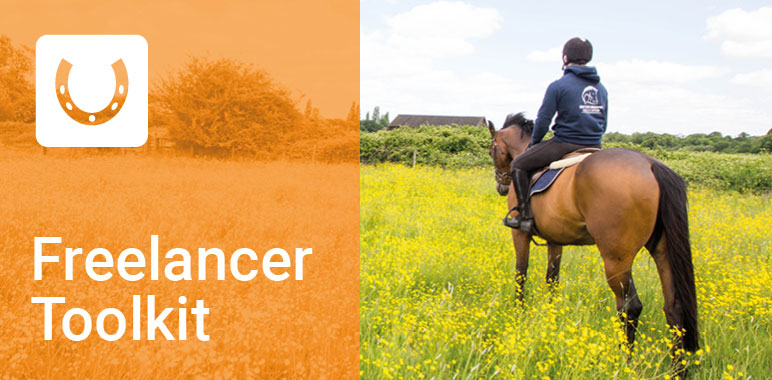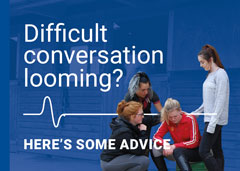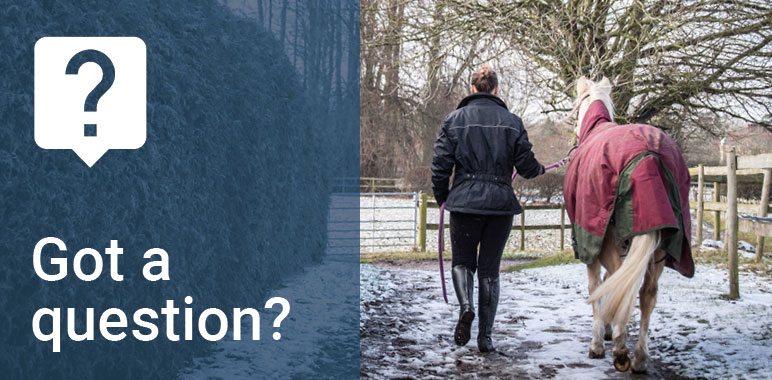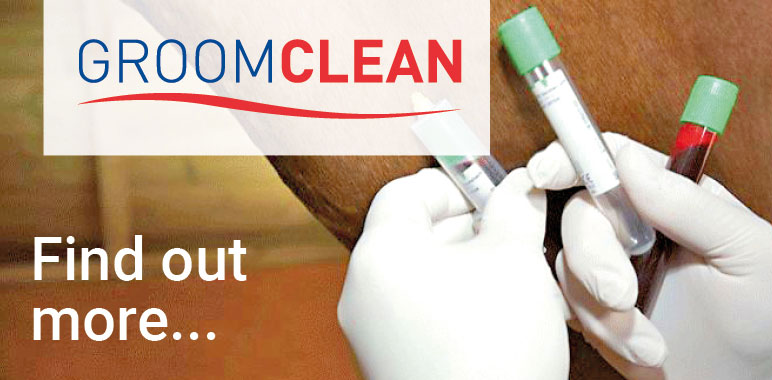- Join Now
- Login
- Member Zone
- Your Career
- Freelancing
- International Grooms Association
- BGA Training
- Healthy Yard Healthy Horses
- Transporting horses
- Brexit
- Safe workplace
- Student Zone
- Member Discounts
- BG Magazine
- Member services
- Training & Careers
- BGA CV Creator
- Horse groom training
- Where to Train
- BGA E Learning
- Career choices
- Change to Racing
- First Aid training for grooms
- Parents
- Grooms Jobs
- Grooms Life
- About
- News
- Contact


Are ticks a pest you have to cope with? Years ago I bought a pony who was covered head to hoof with ticks in the most sneaky places. Time passed by without sight of a little critter until more recently, where it seems to be a regular occurrence to remove a tick from one of the horses, not to mention the dog. Having nearly kissed a tick which was attached to the nose of a very beauitful pony, I asked BGA sponsor Medi-K Training to tell us about ticks, the risks, removal and treatment. "Ticks are small arachnids that feed on the blood of birds and mammals, including humans. They may carry Lyme Disease or Encephalitis that are then transmitted to the host when they bite. They may stay attached for up to 36 hours increasing the risk of infection throughout that time. It is therefore important to remove an attached tick as soon as possible to avoid contracting these diseases. It is also important to remove the whole tick on one piece to avoid any pathogen being disgorged. They latch on to you from alighting from grasses, bushes and dropping on you from low tree branches. They move to a dark, moist place on your body and latch on with their mouths." "Use a tick removal tool such as tick twisters, tick cards or fine point tweezers. You can watch this useful NHS Scotland video on how to remove ticks which includes a real tick removal example. Using a Tick Twister to remove a tick: Tick Twisters are quick and easy to use. • Select the right size of Tick Twister for the tick After you’ve removed a tick, it is important to: • Put the tick on a hard surface and crush it using the end of the tick removal tool ‘Traditional’ methods of tick removal do not work. Fingernails, alcohols, Vaseline, matches and cigarette ends are not effective. They only stress the tick into digging deeper, regurgitating more saliva and hence increase the potential infection. "Lyme Disease is caused by the bacteria Borrelia burgdorferi which is carried in the stomach of an infected tick. Lyme Disease can be a life-changing disease with some serious long term health implications if not detected and treated early. Many people with Lyme Disease go undetected due to lack of awareness." "Bullseye rash – after a tick bite, you may see a red rash where you have removed the tick. Rashes can also appear elsewhere, not just at the bite site. The rash may develop into a ‘bulls-eye’ shape on the skin and it may appear between 2 – 40 days after the bite. Not all Lyme Disease rashes form into a bullseye shape so don’t wait for it to do so! Go to your GP or Out of Hours clinic as a rash is a diagnostic sign of Lyme Disease and needs to be checked out by a medical professional. Medium - Longer term symptoms – Without immediate treatment or if that treatment is unsuccessful or delayed, further symptoms that may develop within 3 months or longer and include flu-like symptoms, facial palsy, joint pain and heart problems. Longer term symptoms may include chronic fatigue, neurological and arthritic problems." "If presented early, a treatment of the antibiotic Doxycycline will usually be prescribed and most people respond well to this with no further symptoms developing." "Stay healthy – a strong healthy body is better equipped to fight off infection or recover from it; • Always have a tick removal tool handy; Tick-borne Encephalitis is a viral infection recently confirmed in the south of England in 2020 and in Scotland in 2023. This attacks the nervous system and can result in meningitis and brain inflammation." "Ticks can live in a wide range of habitats due to changes to our climate. Ticks can be killed off in a harsh winter but these are less frequent nowadays and therefore many ticks live to breed throughout the year." "Check out Lyme Disease UK website which is run by healthcare advocates campaigning for more awareness and research into Lyme Disease." Add this poster to your stable wall or office as a reminder of how to remove ticks properly. Thanks to Medi-K Training for sharing this information with us. Medi-K Training run Equestrian specific first aid courses throughout the UK, including privately organised workshops. The Medi-K trainers are horse riders and owners themselves enabling them to provide equine specific, practical guidance. Join 1000’s of other grooms and belong to your professional association. The BGA is your organisation that supports, represents, and champions the career of all grooms. As a BGA member you will enjoy discounted insurance policies, education, and support. Be part of a community of grooms, just like you. If you would like to become a BGA member, have a look at our membership options, from as little as 49 pence per week. Why should we be concerned about ticks?
31st August 2023
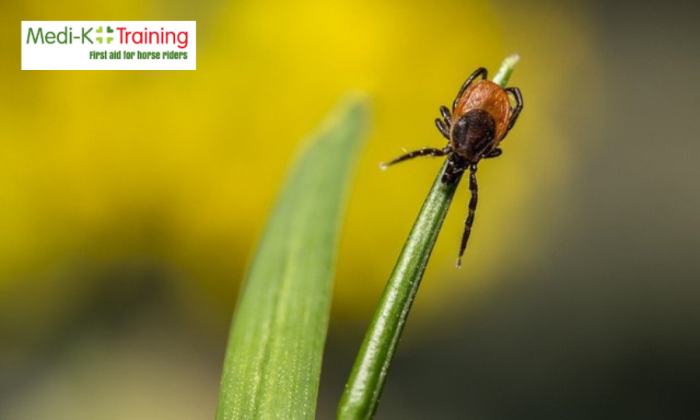
What are ticks?
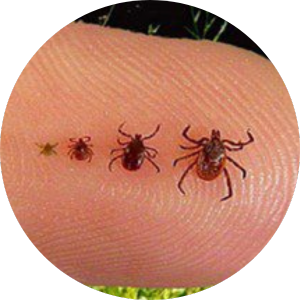
Not all ticks are infectious. Recent estimates state that between 5% and 15% of a local population of ticks may be carrying Lyme Disease.
How do you remove a tick safely?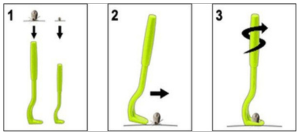
• Slide the Twister under the side of the tick
• Slowly twist / turn the tool and gently lift the tick off
• Clean the wound
• Monitor the site for any rash that may appear
• Check the rest of your body for other ticks
• Clean the tick removal tool ready for future use
• Monitor your health for any symptoms"Don't be tempted...
What is Lyme Disease?
What are the signs and symptoms of Lyme Disease?
How is Lyme Disease treated?
How can I reduce the risk of catching Lyme Disease?
• Inspect yourself regularly whilst outdoors and when you get home;
• Have a buddy system in your group to inspect each other for ticks;
• Wear appropriate clothing in tick-infested areas – long sleeved shirt, jodhpurs or trousers tucked into socks;
• Wear light coloured clothing as this may help you see ticks better;
• Use inspect repellent on your clothes and skin. Check repellents are suitable for children or pregnant women. You can also buy treatments that you wash into clothes that you regularly wear outdoors.Why are there more ticks around now?
Useful links about Lyme Disease and ticks:
Ticks and Lyme disease poster
BOOK A COURSE
Why Join the BGA?
JOIN US
BLOG ARCHIVE
- 2026 (3 ENTRIES)
- 2025 (14 ENTRIES)
- 2024 (52 ENTRIES)
- 2023 (60 ENTRIES)
- 2022 (35 ENTRIES)
- 2021 (24 ENTRIES)
- 2020 (19 ENTRIES)
- 2019 (45 ENTRIES)
- 2018 (36 ENTRIES)
- 2017 (7 ENTRIES)
What the personal accident policy covers you for:
- Whilst at work
- All stable duties – mucking out, grooming, washing off, turning out
- Clipping
- Riding – including hacking and jumping
- Hunting
- Lunging
- Breaking in
- Holding horse for a vet and other procedures
- Travelling horses both in the UK and abroad
- Competing in line with your job including: jumping, dressage, eventing
- Injuries that may happen to you whilst you are teaching - but you must also be grooming as part of your duties and not be a sole instructor
What the personal accident policy doesn’t cover you for:
- Riding in a race, point to point or team chase
- Stunt Riding
- Accidents occurring whilst travelling to and from work
- Riding and competing your own horse (but you can upgrade when applying for membership to include this)
- Public Liability – this is a separate insurance policy - the Freelance Groom Liability Insurance
- Care Custody and Control – this is a separate policy - the Freelance Groom Liability Insurance
If you require additional cover then please contact KBIS directly.
| GROOM | RIDER | EMPLOYER | |
|
When you are working for other people you do most of the following; muck out, turn out/catch in, tack up, groom horses, exercise Horses (including hacking, jumping and schooling), in the care of your employer/client. |
|
|
|
| Predominantly ride horses for other people including schooling, exercising and competing. | NO |
YES |
YES |
| Provide grooming services for someone else either full time or on a freelance basis i.e. an employer or a client. | YES |
NO |
NO |
| Employ staff – have an employers liability policy in your name | NO | NO | YES |
| Buy and sell horses | NO | YES | YES |






